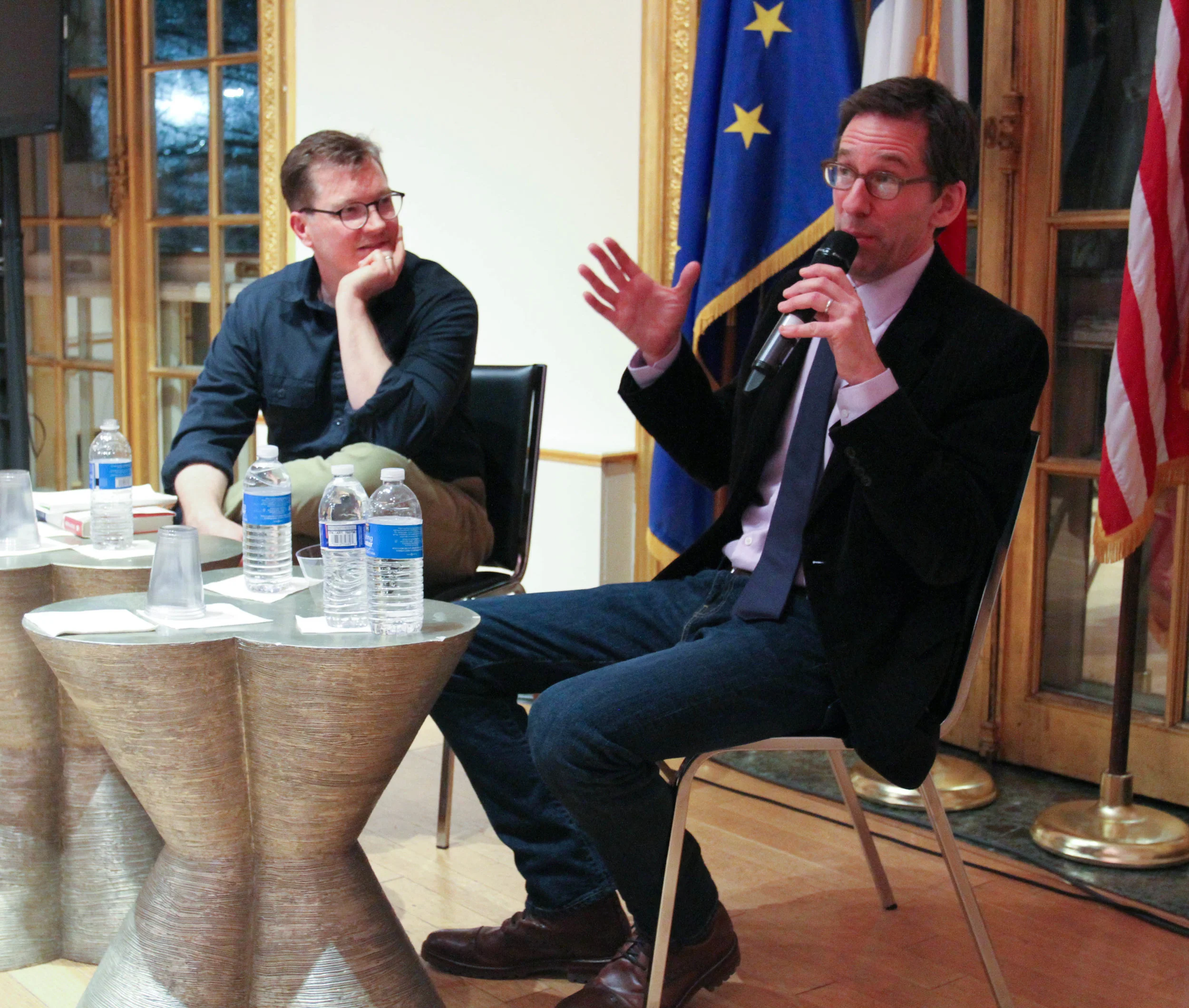Peter Meehan & David Chang @ Rizzoli Bookstore

Peter Meehan presented his second Lucky Peach cookbook, Power Vegetables, at Rizzoli Bookstore, in conversation with his longtime friend and collaborator David Chang. Although this is Meehan’s sixth book, Chang said “He’s done a lot, but this is the first one that I feel is a real Peter Meehan book.”
The idea for the book came out of the author’s growing interest in home cooking and practicality, not exactly hallmarks of Lucky Peach’s early days as a print magazine. “When we first started Lucky Peach, we did a lot of recipes from chefs that were impossible at home, but maybe would be illuminating or would give you an idea. But we had the magazine, I had two kids, and the idea of a four-page recipe became offensive. This book was just so I’d have shit to cook at home. And you get old and fat and I was like, I need to eat more vegetables.”
Both cooks agreed that home cooking should be about ease, and “Ease is Power” is one of the central tenets of the book. “We wanted to limit how far we could stretch the pantry- we wanted a book you could cook from without having to get something delivered by a special bird fairy.” Maybe of the preparations are simple, but the goal is to pack a punch. There are few subrecipes (and when they exist, they’re for simple this-should-already-be-in-your-fridge items like tomato sauce).
There’s also power in paring your life back to the essentials. “Back when I first got into food and started reading cookbooks, I would think that if there were three recipes in a book that I cooked regularly, it could have a spot in my home. But I’ve gotten much more ruthless, and I wanted a book where you could just come home and cook basically anything in it.”
But what is a Power Vegetable? Basically it’s a Bro Veg sent from Manhattan to crash your artisanal Kinfolk vegan picnic, and it’ll probably end the night puking all over your hand-tacked linen picnic blanket. “Vegetable books are often so burlap-y. You’re gonna be healthy and take care of yourself and eat seasonal…that’s not my aesthetic. I wanted vegetables to be funny and colorful in addition to delicious. No one needs to be told that if you go to the farmers market and cook what you by that night, it’ll be delicious. We’ve all internalized that by now. But I wanted to find idiot-proof ways of making the ehh vegetables that you buy at the regular grocery store delicious.”
In keeping with that theme, he avoided vegetables that need a lot of special prep to make them edible, like fava beans. There’s no meat in the book, but fish, eggs and dairy were allowed. Meehan said, “there’s a good challenge in limited ingredients, it can actually be liberating and exciting. Cured meat was a slippery slope – once you add a little meat to the party...I think we could do a follow-up called ‘Make your Vegetables Better With Meat.’ But for this we were looking for vegetables that could be a full meal without needing meat. There are some vegan recipes. It certainly wasn’t a goal but it happened accidentally in a few places.”
FWIW, Chang seems to be softening his views on vegans in his old age. “Good vegan food can be done. But the time commitment to making vegan food extraordinarily delicious is too extreme.”
There was much discussion about which vegetables could be considered Powerful, and where to find the best examples. Meehan made a strong case for celery, as long as you avoid celeriac remoulade. “I’ve never been to Paris, really, which is a sad story about my life. But one time I had a layover there and we got to the hotel late at night. Everything was closed, but there were vending machines that had Amstel Lights and blister-packs of celery remoulade. That was my saddest dinner.” He suggests braising it instead, and Chang recommends it with Sichuan pepper and soy sauce. “It’s underrated, you can always do something with it.” Daikon was a surprise favorite when Meehan was writing, and other Asian ingredients came up a lot as well. Chang's recommendation was the fermented turnip top, but for something more common, they suggest just putting miso-butter and/or kimchi in everything. "We could have just done a look that said, 'put miso butter on all your vegetables,' but I guess that wouldn't sell as well."
Besides China, Meehan thinks that power vegetables can be found in America, India, Italy, and Mexico, among other suggestions. “The American recipes here have an inventiveness, no tradition, just trying to make things delicious. Well, not all of America, but there are little blue sections.” Korea also came up as a Power Veg destination. “I used to think that Irish food and Korean food had a lot in common, because we both like potatoes and drinking.”
Can one go wrong with Power Vegetables? Oh yes. Beans can count, but Chang is careful to say that he is not a fan of adzukis. “I feel very strongly that if Asia had invented puff pastry and ice cream, we’d have the #1 cuisine in the world. But we fucked it all up putting goddamn beans in desserts.”





